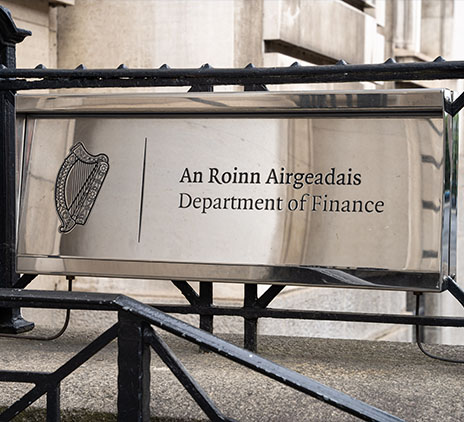-
Aviation Advisory
Our dedicated Aviation Advisory team bring best-in-class expertise across modelling, lease management, financial accounting and transaction execution as well as technical services completed by certified engineers.
-
Consulting
Our Consulting team guarantees quick turnarounds, lower partner-to-staff ratio than most and superior results delivered on a range of services.
-
Business Risk Services
Our Business Risk Services team deliver practical and pragmatic solutions that support clients in growing and protecting the inherent value of their businesses.
-
Deal Advisory
Our experienced Deal Advisory team has provided a range of transaction, valuation, deal advisory and restructuring services to clients for the past two decades.
-
Forensic Accounting
Our Forensic and Investigation Services team have targeted solutions to solve difficult challenges - making the difference between finding the truth or being left in the dark.
-
Financial Accounting and Advisory
Our FAAS team designs and implements creative solutions for organisations expanding into new markets or undertaking functional financial transformations.
-
Restructuring
Grant Thornton is Ireland’s leading provider of insolvency and corporate recovery solutions.
-
Risk Advisory
Our Risk Advisory team delivers innovative solutions and strategic insights for the Financial Services sector, addressing disruptive forces, regulatory changes, and emerging trends to enhance risk management and foster competitive advantage.
-
Sustainability Advisory
Our Sustainability Advisory team works with clients to accelerate their sustainability journey through innovative and pragmatic solutions.

-
 Asset management Asset management of the futureIn today’s global asset management landscape, there is an almost constant onslaught of change and complexity. To combat such complex change, asset managers need a consolidated approach. Read our publication and find out more about what you can achieve by choosing to work with us.
Asset management Asset management of the futureIn today’s global asset management landscape, there is an almost constant onslaught of change and complexity. To combat such complex change, asset managers need a consolidated approach. Read our publication and find out more about what you can achieve by choosing to work with us. -
 Internal Audit Maintaining Compliance with New EU Pension Directive IORP IIOn 28 April 2021, the Irish Government transposed IORP II (Institution for Occupational Retirement Provision), an EU directive on the activities and supervision of pension schemes, into law.
Internal Audit Maintaining Compliance with New EU Pension Directive IORP IIOn 28 April 2021, the Irish Government transposed IORP II (Institution for Occupational Retirement Provision), an EU directive on the activities and supervision of pension schemes, into law. -
 Risk, Compliance and Professional Standards FRED 82 – Periodic Updates to FRS 100 – 105The concept of a new suite of standards for the UK and Ireland, aligning with international financial reporting standards, was first conceived in 2002
Risk, Compliance and Professional Standards FRED 82 – Periodic Updates to FRS 100 – 105The concept of a new suite of standards for the UK and Ireland, aligning with international financial reporting standards, was first conceived in 2002 -
 Audit and Assurance Auditor transition: how to achieve a smooth changeoverAppointing new auditors may seem like a daunting task that will be disruptive to your business and a drain on the finance function. Nevertheless, there are a multitude of reasons to consider a change, including simply seeking a ‘fresh look’ at the business.
Audit and Assurance Auditor transition: how to achieve a smooth changeoverAppointing new auditors may seem like a daunting task that will be disruptive to your business and a drain on the finance function. Nevertheless, there are a multitude of reasons to consider a change, including simply seeking a ‘fresh look’ at the business.
-
Corporate Tax
Our Corporate Tax team is made up of more than 40 highly experienced senior partners and directors who work directly with a wide range of domestic and international clients; covering Corporation Tax, Company Secretarial, Employer Solutions, Global Mobility and Tax Incentives.
-
Financial Services Tax
The Grant Thornton team is made up of experts who are fully up to date in terms of changing and evolving tax legislation. This is combined with industry expertise and an in-depth knowledge of the evolving financial services regulatory landscape.
-
Indirect Tax Advisory & Compliance
Grant Thornton’s team of indirect tax specialists helps a range of clients across a variety of sectors including pharmaceuticals, financial services, construction and property and food to navigate these complexities.
-
International Tax
We develop close relationships with clients in order to gain a deep understanding of their businesses to ensure they make the right operational decisions. The wrong decision on how a company sells into a new market or establishes a new subsidiary can have major tax implications.
-
Private Client
Grant Thornton’s Private Client Services team can advise you on all areas of financial, pension, investment, succession and inheritance planning. We understand that each individual’s circumstances are different to the next and we tailor our services to suit your specific needs.


Receive the latest insights, news and more direct to your inbox.
Research and development (“R&D”) tax credit
The R&D tax credit has long been a valuable tax relief for companies operating in Ireland given that it represents a potential 25% refund of costs incurred, regardless of whether any corporation tax has been paid.
introduces some key changes to the way the R&D tax credit is refunded, which will benefit both international and domestic taxpayers as follows:
- The current offset system against corporation tax and three-year repayment regime is being changed to a new fixed three-year payment system, which should bring the scheme in line with the OECD Pillar Two GloBE guidelines.
- A company will have an option to offset the credit against other tax liabilities (non-CT), and existing caps on the payable element of the credit are being removed.
- To enhance the cash-flow benefit for smaller R&D projects, companies can now reclaim up to €25,000 of eligible refunds in year one.
Knowledge development box (“KDB”)
Another attractive feature of Ireland’s tax offering is the KDB regime, whereby profits arising from patented inventions, copyrighted software and certain other specific asset classes can effectively be taxed at a reduced rate of 6.25%.
The Bill provides that the KDB regime will be extended for four years until 2027. Additionally, the KDB will have a new effective tax rate of 10% (increased from 6.25%), to come into effect from a date to be set by Commencement Order. This will be linked to international progress on implementation of the OECD’s Pillar Two Subject to Tax Rule.
Digital games tax credit
The digital games tax credit, introduced in Finance Act 2021, provides a refundable corporation tax credit for qualifying expenditure incurred on the design, production and testing of a game. When introduced, the relief will be available at a rate of 32% on eligible expenditure of up to a maximum limit of €25 million per project.
The Bill makes a number of technical amendments in respect of the relief, to ensure compliance with EU State aid requirements and other minor technical amendments. The relief remains subject to Commencement Order before it comes into effect.
Sale of patent rights
The Bill provides an amendment to the treatment of capital sums received for the sale of patent rights. The provisions deem an intra-group transfer of patent rights to be tax neutral where certain conditions are met. Additionally, there is a technical amendment which confirms that the outright sale of a patent is chargeable to capital gains tax, whereas the sale of patent rights for a capital sum is subject to tax as income.
Foreign exchange movements
In relation to the taxation of foreign exchange gains and losses arising to trading companies, the definition of “relevant monetary item” is being expanded to include trade debtors and trading bank accounts. This is a welcome development as foreign exchange movements on trade debtor balances were not previously covered by the relevant legislation, although Revenue guidance on the scope of the new legislation will be important.
Interest limitation rules
The interest limitation rules, introduced in Finance Act 2021, apply to accounting periods commencing on or after 1 January 2022. In short, the rules limit the maximum tax deduction for net borrowing costs to 30% of a corporate taxpayer’s EBITDA (as defined under tax principles), although there are a number of exclusions.
Certain technical amendments are being introduced in respect of the existing interest limitation rules to ensure that the rules operate as intended. This includes clarification of the operation of the exemption for interest on legacy debt, to specify that a “first-in-first-out” basis applies where there is a repayment in respect of facilities which have a mixture of legacy debt and non-legacy debt.
Transfer pricing
On the transfer pricing side, a change is being made to reference the OECD’s most recent Transfer Pricing Guidelines published in January 2022. These guidelines replace the 2017 guidelines previously legislated for and will apply for chargeable periods commencing on or after 1 January 2023.
DAC7 reporting obligations
The Bill continues the transposition into Irish domestic law of an EU Directive (DAC7), requiring digital platform operators in the EU to report certain information to the relevant tax authorities each year. Certain Committee Stage amendments are proposed to ensure that the implementation date of 1 January 2023 is met.
Special Assignee Relief Programme (“SARP”)
SARP is being extended by three years to 31 December 2025, with a view to maintaining Ireland’s attractiveness to senior foreign executives, and by extension as a location for foreign direct investment.
The income threshold to avail of the scheme has been increased to €100,000 (previously €75,000), although existing claimants will not be impacted. A minor technical measure provides that SARP applications must include the employee’s PPSN.
Please refer to our Employment Taxes insight for further detail on this and more.
Temporary Business Energy Support Scheme
The Bill makes provision for the new Temporary Business Support Scheme (TBESS) as announced on Budget Day. Read our for an overview of the scheme. Subsequent to publication of the Bill, Revenue published their guidelines on the scheme. The guidelines, version 1 and likely to be updated in the near future, focus on eligibility for the scheme, how to determine the value of the relief available, and how to register to make a claim.
The system to support registrations and the claims process is under development and it is expected to be available on Revenue Online Service (ROS) during November. Tax clearance will be required to apply for the scheme, businesses will need to consider obtaining tax clearance as soon as possible so that they are ready to apply for payment under the TBESS when the system is open for applications. Revenue have also indicated that there will be amendments to the measures as initiated in the Bill, likely at Committee Stage of the Bill.
Contact us
For additional information on any of the foregoing provisions, please contact your usual Grant Thornton contact.















